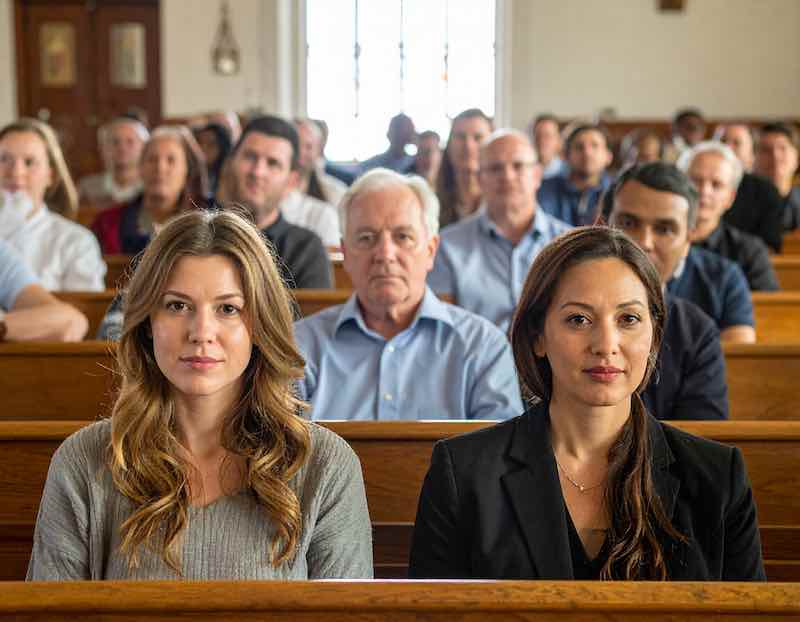What are the main purposes or activities of a church?
I reckon a lot of people would say something like: worship, teaching, fellowship, pastoral care and mission.
So why is teaching on that list? What are churches aiming to achieve with their teaching? Let’s dig into that question.
Knowledge and spiritual growth?
In churches that emphasise doctrine and Bible knowledge, teaching via the sermon is generally the main focus of their services. Because they believe the Bible contains everything a Christians needs to grow in faith, these churches want people to know the Bible well. And because they generally have well worked out doctrinal statements, they want that Bible knowledge to be guided by doctrinal teaching.
In more charismatic churches, Bible knowledge is still important, but the purpose of teaching isn’t so much doctrine and knowledge for knowledge sake, but rather the sermon aims at spiritual growth. Often the teaching will lead on to a time of “ministry” where the congregation is invited to receive prayer or respond in some way.
So sermons aim at knowledge or growth, and home groups likely also have these as major aims.
But there’s a problem
The problem is, sermons are known to be poor ways to teach information or promote growth and transformation.
Psychologists and educators have studied how people learn. Sitting passively and listening is just about the worst way to teach and not very likely to lead to transformation. People need to be engaged in active learning or self learning.
The brains God gave us are constructed in ways that mean we are unlikely to retain information or act upon it if we get too much information at once, or the information doesn’t relate to what we already know, or we don’t have time to consider and apply what we have learnt.
Discussion is key to remembering and assimilating information and then applying it in our lives. If we want people to grow in faith, this means change, and that generally requires practical guidance, mentoring and trying ideas out.
Sermons and church services just don’t provide these. They are working against the brains God has given us.
Who wants to know?
I have discussed these facts about our brains and how we learn with quite a few ministers who would preach regularly.
Most deflect the information and move on. They clearly don’t want to know.
A few admit that sermons are not great ways to learn, but argue “something goes in”. As if it is OK to give God and the people in their congregations what they know is second best!
Just one minister agreed, but suggested his serrmons had a purpose other than teaching or transformation. Having heard him give many talks, I’d say he aims to inspire or enthuse, which doesn’t necessarily require that information be retained, a feeling may be sufficient.
The thing is, there are better ways
Preachers could learn from educators and school teachers. Maybe try some of these ideas:
- Services and sermons could be broken into smaller chunks, with opportunity for the congregation to discuss or research or consider.
- Make sermons more active: there are ways to engage people by speaking less and more effectively, and involving the congregation more.
- Church in a circle: a bunch of practical ways to make learning more fun and more memorable. (These aren’t my ideas, but they are so worthwhile I have borrowed them with permission.)
- Instead of teaching people doctrine or Bible knowledge, teach them how to read the Bible and learn themselves. The minister becomes a trainer or coach. (This seem to fulfil Jeremiah 31:34: No longer will they teach their neighbor, or say to one another, ‘Know the Lord,’ because they will all know me, from the least of them to the greatest,” declares the Lord.)
- Smaller churches or home groups can introduce yarning circles.
- Tell more stories, allow people the opportunity to work things out themselves – think Jesus and parables.
These ideas don’t have to be tried all at once, this would be too big a shock for everyone! But there are ways to move gradually towards being more effective in teaching.
So what’s holding us all back?
I can think of a number of reasons.
1. “I’m not trained for this”
Pastors are generally trained to preach. Many of them like to be up the front with the microphone. Leading discussion, opening up the mic for others, taking a less direct approach, all require different skills that pastors may not have. It is easier to just keep going with the familiar.
2. “The congregation expects a sermon”
Studies show that while preaching doesn’t teach very effectively or lead to transformational change, it does often make people feel good. If the minister isn’t preaching, what’s going on?
3. “It might get out of control”
If you give people a chance to talk among themselves or to take the mic, you never know what might happen. Someone may talk and talk and talk. Someone may say some really odd or some seriously wrong things. Discussion can go off on tangents.
These are legitimate issues. There need to be ways to deal with such problems.
But I can’t help feeling that often there’s more to it than these problems.
I fear sometimes pastors want to control what the congregation thinks on even minor matters. They don’t welcome hard questions, especially ones they can’t answer, or don’t want to answer.
These days people have access to all sorts of information, and can easily take discussions in directions the pastor finds uncomfortable. I’ve seen it happen – a well-informed teen correcting a minister on something substantial.
Some ministers would welcome thoughtful discussion and alternative viewpoints, but others would find this threatening.
So is that one of the attractions of sermons?
They may not teach well, but they are safe?
Graphic: AI graphic from Firefly.
Read more

Yarning circles
Many indigenous people use yarning circles to discuss, learn and make decisions in a way that gives everyone a voice. The church could utilise these processes.

Sermons – not a good way to teach and make disciples
Ideas on how to communicate best to the brains God has given us. Sermons are not the best way.

Church in a circle
Different ways to make church more active than passive, more sharing than monologue, and hence more interesting and effective.

Why discussion is important
Discussion may be seen as an optional extra but educators have found it has a crucial and essential role in remembering, learning and acting on information.

Leave a Reply